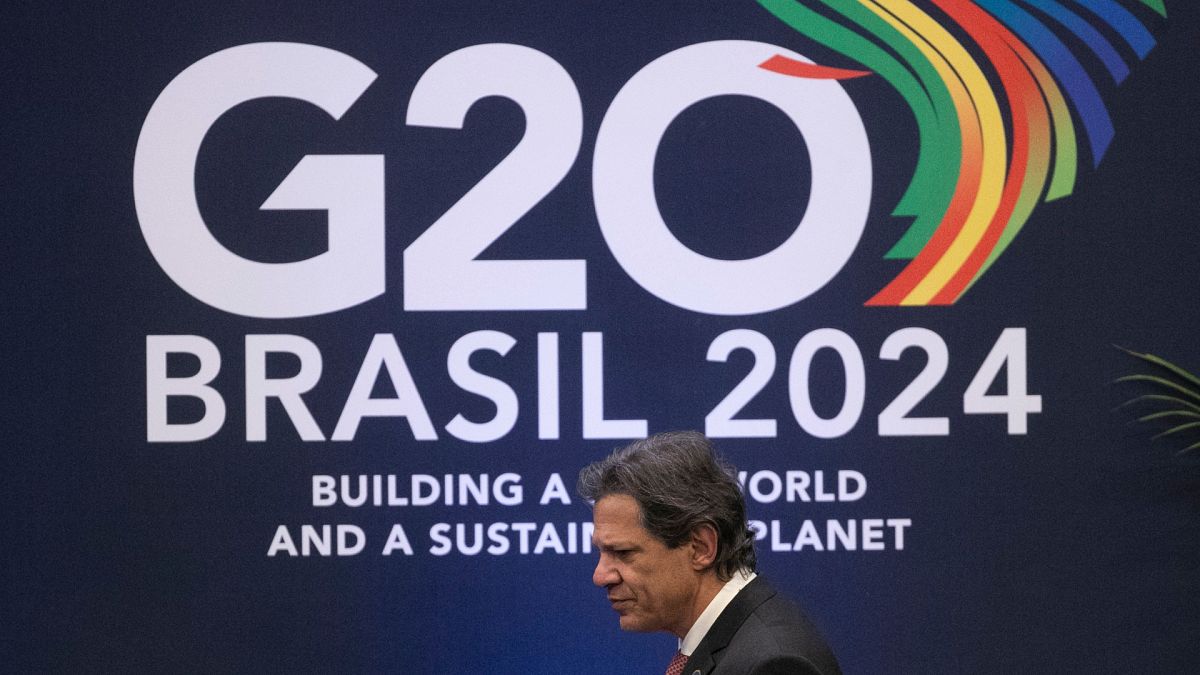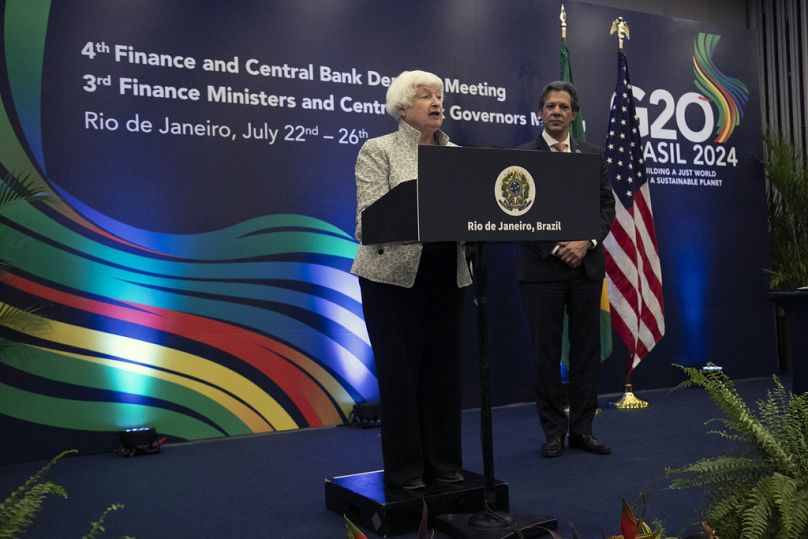Though the G20 has agreed in theory, disagreements over a viable plan are bubbling under the surface.
For the first time, finance leaders from G20 countries have agreed on a wealth tax on the world’s super-rich. It could raise around €230 billion to tackle causes like climate change and poverty.
The wealth tax was proposed at a meeting between treasury ministers and central bankers from the world’s biggest developed and emerging economies in Rio de Janeiro. A joint statement last Friday said all countries had agreed to “engage cooperatively to ensure that ultra-high-net-worth individuals are effectively taxed.”
Beneath this consensus, however, disagreements are bubbling about whether the plan is viable, who would oversee the process and how to actually introduce a tax on the super-rich.
Some governments have been privately sceptical that it can succeed.
Is there support for a tax on the super-rich?
Brazil is leading the drive for a tax on the ultra-wealthy. It has put climate change and poverty at the top of the agenda for its presidency of the G20 meetings this year ahead of hosting the COP30 UN climate conference in 2025.
A report by French economist Gabriel Zucman commissioned by Brazil found that billionaires currently pay the equivalent of 0.3 per cent of their wealth in taxes. Brazilian President Luiz Inacio Lula da Silva was hoping for a minimum 2 per cent tax on the richest 3,000 billionaires which could unlock between €184 billion and €230 billion globally each year.
The report says this money could fund public services like education and health care alongside the fight against climate change.
Despite the agreement in theory, some countries have pushed back against the proposal including German Finance Minister Christian Lindner and US Treasury Secretary Janet Yellen.
Yellen told journalists in Rio that the US “see the need or really think it's desirable to try to negotiate a global agreement on that.” Experts say a global agreement is needed to avoid some countries becoming tax havens for the ultra-wealthy.
Others including France, Spain, South Africa, Colombia and the African Union - a continental union of 55 member states - support the initiative.
Zucman said it was too early for countries to agree on his proposal but welcomed a “consensus among G20 countries that the way we tax the super-rich must be fixed.”
Climate campaigners welcome a tax on the super-rich
The consensus has also been welcomed by environmental campaigners who hope that some of the funds a tax like this may raise can be used to tackle the climate crisis.
“We often hear there is not enough money to solve the climate crisis, which is set to cost trillions of dollars every year,” says Camila Jardim, international politics specialist for Greenpeace Brazil.
“But taxing the super-rich can start to show there is more than enough money – it just needs to be channelled away from destruction.”
Oxfam International’s tax policy lead Susana Ruiz called it “serious global progress” on international tax cooperation.
“Finally, the richest people are being told they can't game the tax system or avoid paying their fair share.”
















